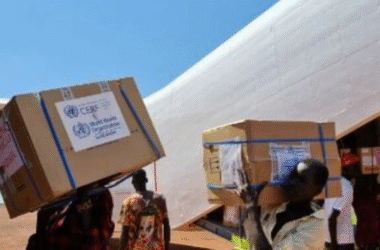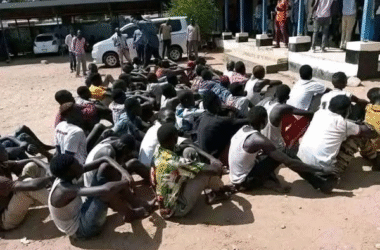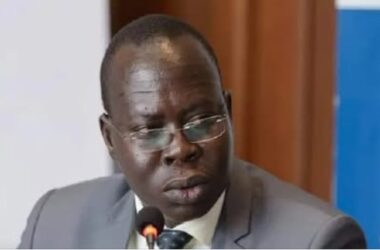By William Madouk
Vice President Dr. James Wani Igga, who also chairs the Economic Cluster, urged citizens to focus on hard work and agricultural development rather than resorting to begging for food.
Speaking at the launch of the third edition of the Juba Economic Forum 2025, VP Igga emphasized that South Sudan is blessed with abundant land, water, and a favorable climate, making it ideal for growing its own food.
He encouraged the population to harness the resources to achieve self-sufficiency and improve their livelihoods.
“In fact, I go beyond the region with our almost 95 per cent arable land of the 600,048 thousand square kilometers – we feed the (African) continent, we can – don’t be doubting Thomases,” he said.
“It is a will that can translate into reality, together let us unlock the eminence potential of agriculture and pave for stable, prosperous and self-reliance South Sudan. We are tired of begging and begging must stop,” he added.
VP called on farmers and households to take proactive steps in venturing into agriculture, stimulate growth, ensure food security and foster self-reliance.
“Food first, maybe even before education and health because food in itself is a medicine, let us do what we preach everywhere,” Igga said.
The Vice President stated that the government must ensure the allocation of 10% of the total annual budget to the agricultural sector.
“We are devoted to ensuring that both local entrepreneurs and international investors find this beloved country and friendly people a welcoming hub for investment,” Igga stated.
The head of Economic Cluster affirmed that policies and reforms are being implemented to reduce barriers to entry, improve infrastructure, and ensure investment security.
Separately, Josephine Joseph Lagu, Minister of Agriculture and Food Security, highlighted South Sudan’s vast arable land, abundant water resources, and favorable climate for agriculture.
“We have six agro ecological zones where we can produce varieties of crops,” she stated.
“We have the green belt where we can produce oil palm, tea, coffee, fruits, sweet potatoes, Irish potatoes, cassava, sorghum, millet, maize and vegetables of all kinds,” Ms. Lagu added.
She mentioned the iron swamp plateau-flood plains – arid zone – hills and mountains where sorghum, granites, sesame, cotton, sunflower, cane sesame etc can grow and for rearing livestock.
Ms. Lagu argued that in spite of various agroecological zones with thirty-million hectares of prime arable land, agriculture sector remains weak as farmers focused on survival farming.
“We are mainly focusing on subsistence farming and as a result, agricultural production and productivity are very low, and that’s why we have food insecurity. And this is the paradox,” she clarified.
Ms. Lagu highlighted that this paradox is not only for South Sudan but all over African as a quarter of a billion Africans remain in food insecurity despite vast fertile agricultural land.
She noted that the 2023 statistics shared at the Comprehensive Africa Agriculture Development Programme (CAADP) summit in Kampala show that the African continent imported food worth 100 billion outside.
She cited that transforming the agricultural sector into a thriving commercial industry will drive economic growth, create jobs for people, especially the youth and stop them from engaging in antisocial activities.
“It is about shifting from subsistence [farming] to surplus, from poverty to prosperity. Agriculture has the potential to employ millions of South Sudanese by investing in commercial farming, agro-processing, and agribusinesses,” she added.




